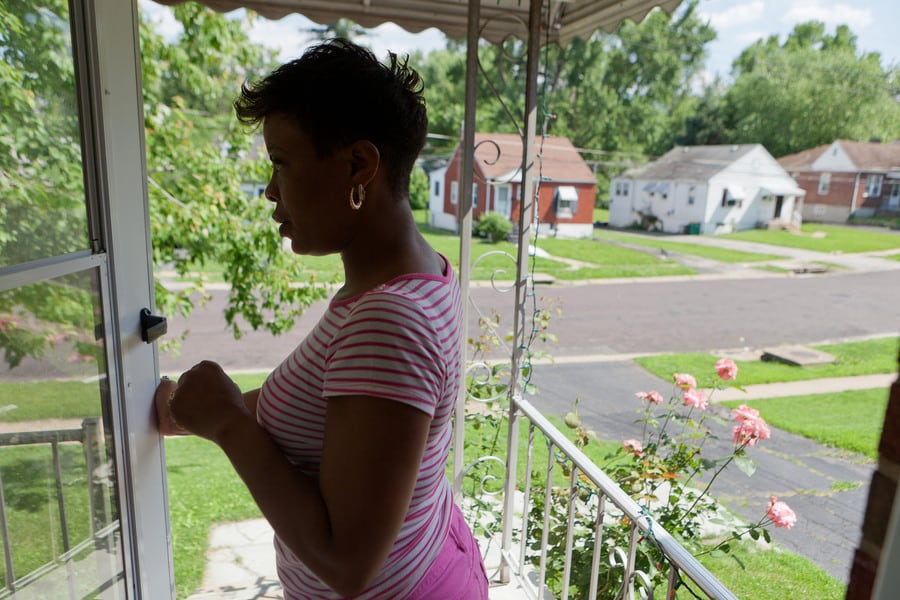The clients at Beyond Housing, a St. Louis nonprofit that provides assistance to low-income families, are roughly half white and half black. But the staff has noticed a dispiriting difference: white clients are far more likely to have some kind of support to draw on, whether it’s their own assets or help from a family member.
For black clients, “so much of that kind of help has been already tapped out,” said Linda Ingram, the manager of the foreclosure intervention department. The lack of resources makes it harder for black clients to extricate themselves from debt. It also means the most stable members of a family can easily get overstretched.
“I can’t tell you the number of times I have a 55- to 65-year-old African-American woman who can’t make her mortgage payment because she’s helped other members of the family to the detriment of keeping herself afloat,” Ingram said.
By any measure, black households are worse off financially than white ones. They make, on average, far less money. But more pernicious is the vastly larger gap in wealth between whites and blacks — a divide that is wider than it was 30 years ago.
The source of this disparity is as deep as the nation’s history, said William A. Darity Jr., a professor of economics and public policy at Duke University. And addressing it is not as straightforward as improving employment or education among blacks.
It stems largely from “differences in the capacity of one generation of parents to transfer their resources to the next,” Darity said. “And those differences are strongly associated with race.”
Black families have fewer assets like homes and cars, as well as less cash stashed away. The gap remains even among families toward the lower end of the income scale: According to our analysis of the Federal Reserve’s 2013 Survey of Consumer Finances, the typical white family with annual income between $20,000 and $40,000 had about $2,010 in liquid assets, while the typical black family in that range had just $650.
Low-income families generally do “very, very well given the very meager resources and high expenses they have,” said Michael Collins, faculty director of the Center for Financial Security at the University of Wisconsin-Madison. “But there comes a point in time when there’s just nothing there. There’s no more income, there’s no more savings, and the options are pretty limited, because you don’t have the social network, you don’t have the legal and other resources available to you to find a solution.”
Dora Byrd, 70, lives in Northwoods, a suburb that borders Jennings to the southwest, with her husband, Alphonso Byrd, 81. The couple married late in life after being introduced by their children. They are both retired after long careers, she as a domestic employee and he as a mechanic.
They live in the home Alphonso Byrd bought in 1968, when, he said, he was the first black man to move onto the block.
“And then signs started going up like popcorn,” he said. The area is now 95 percent black.
Both have extended themselves to help their children. Alphonso Byrd put his name on his daughter’s house when she was faced with losing it to foreclosure, he said. Dora Byrd allowed her disabled daughter to move into her former home after she moved in with her husband.
Both were sued by MSD when the sewer bills on those houses went unpaid.
In Dora Byrd’s case, MSD went after her bank account. She’d been living primarily off of a monthly $600 Social Security check. It’s illegal for federal benefits to be garnished, but at the time, she had both a checking and a savings account, and only the money electronically deposited into her checking account was automatically protected.
As a result, MSD was able to seize $645 from her savings account, more than a third of the money in her accounts, according to bank records.
The money in the savings account “was just a little something we put away if something was to come up,” she said. With her reserves drained, Byrd said, the following months were tight.
LeComb, the MSD spokesman, said that the utility does not know the age of its customers, and that if Byrd had filed a claim in court stating that the funds were exempt, the garnishment would have been terminated.








